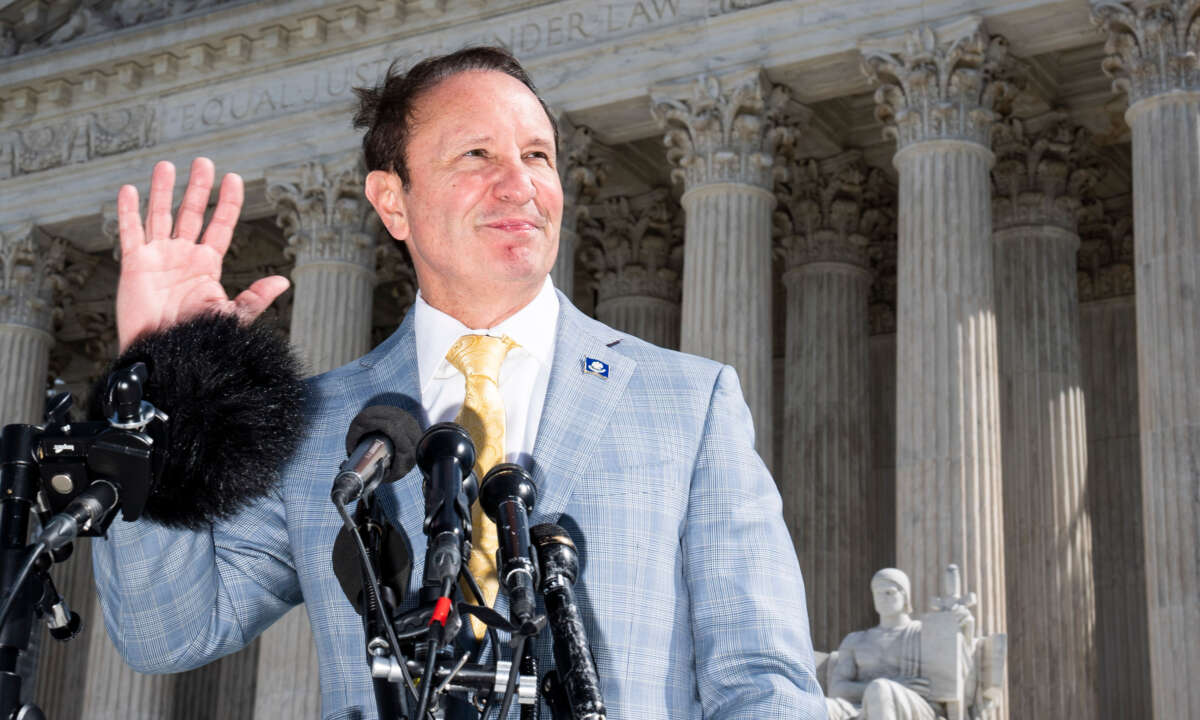Truthout is a vital news source and a living history of political struggle. If you think our work is valuable, support us with a donation of any size.
A federal judge has blocked a state law in Louisiana that aimed to require that the Ten Commandments be prominently displayed in classrooms, finding that the law is likely an unconstitutional endorsement of religion that violates students’ and parents’ rights.
A coalition of parents upset with the law, which was enacted earlier this summer (and set to be implemented starting in January), sued the state, arguing that the display of the Ten Commandments would infringe on their children’s right to attend a public school setting free of religious indoctrination.
The Ten Commandments are a religious teaching featured in all Abrahamic faiths. Conservative Christians in the U.S. have tried, for decades, to include the commandments in public school instruction, violating the separation of church and state standard within the U.S. Constitution as well as in several state constitutions, including Louisiana’s.
GOP lawmakers in Louisiana, including Republican Gov. Jeff Landry, attempted to justify the new law by claiming that the requirement to display a poster of the Ten Commandments in every classroom (from kindergarten to the university level) had historical and educational relevance. But during his signing statement, Landry failed to provide any real rationale for why the commandments should be required in classrooms.
“If you want to respect the rule of law, you’ve got to start from the original lawgiver, which was Moses,” Landry said earlier this year.
In his ruling on Tuesday, U.S. District Judge John deGravelles sided with the aggrieved parents, noting that the law is “facially unconstitutional.” While the litigation process continues, deGravelles ordered that the state be barred from enforcing the law, or even creating specific rules about it, which would have otherwise been allowed to go into effect later this week.
DeGravelles recognized in his order that “each of the Plaintiffs’ minor children will be forced ‘in every practical sense,’ through Louisiana’s required attendance policy, to be a ‘captive audience’ and to participate in a religious exercise: reading and considering a specific version of the Ten Commandments, one posted in every single classroom, for the entire school year, regardless of the age of the student or subject matter of the course.”
By requiring the texts in every classroom, plaintiffs’ children would be “irreparably harmed,” deGravelles added.
Louisiana Attorney General Liz Murrill said the state “strongly disagree[s] with the court’s decision.” Religious freedom organizations, however, lauded the ruling, noting that the law was a direct violation of people’s rights.
The state will likely appeal the decision — indeed, Landry welcomed challenges to the law back when he initially signed it, indicating he is planning a long legal battle that has the potential to reach the U.S. Supreme Court.
“This ruling should serve as a reality check for Louisiana lawmakers who want to use public schools to convert children to their preferred brand of Christianity,” said Heather Weaver, senior staff attorney for the American Civil Liberty Union’s (ACLU) Program on Freedom of Religion and Belief. “Public schools are not Sunday schools, and today’s decision ensures that our clients’ classrooms will remain spaces where all students, regardless of their faith, feel welcomed.”
Interfaith Alliance, an organization that advocates for “healthy boundaries” between religious and government entities, praised the ruling in a press release shared with Truthout.
“Today’s ruling is a victory for the Constitution and for true religious freedom — which requires ensuring that no one religious group is allowed to impose their viewpoint on all Americans,” said the group’s president and CEO Paul Brandeis Raushenbush. “Louisiana’s Ten Commandments law is blatant religious coercion that should have absolutely no place in public schools.”
Rachel Laser, president and CEO of Americans United for Separation of Church and State, also celebrated the order from deGravelles.
“This ruling will ensure that Louisiana families — not politicians or public school officials — get to decide if, when and how their children engage with religion,” Laser said. “It should send a strong message to Christian Nationalists across the country that they cannot impose their beliefs on our nation’s public school children.”
A terrifying moment. We appeal for your support.
In the last weeks, we have witnessed an authoritarian assault on communities in Minnesota and across the nation.
The need for truthful, grassroots reporting is urgent at this cataclysmic historical moment. Yet, Trump-aligned billionaires and other allies have taken over many legacy media outlets — the culmination of a decades-long campaign to place control of the narrative into the hands of the political right.
We refuse to let Trump’s blatant propaganda machine go unchecked. Untethered to corporate ownership or advertisers, Truthout remains fearless in our reporting and our determination to use journalism as a tool for justice.
But we need your help just to fund our basic expenses. Over 80 percent of Truthout’s funding comes from small individual donations from our community of readers, and over a third of our total budget is supported by recurring monthly donors.
Truthout’s fundraiser ended last night, and we fell just short of our goal. But your support still matters immensely. Whether you can make a small monthly donation or a larger one-time gift, Truthout only works with your help.
